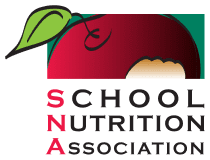Full Article
Please note that this study was published before the implementation of Healthy, Hunger-Free Kids Act of 2010, which went into effect during the 2012-13 school year, and its provision for Smart Snacks Nutrition Standards for Competitive Food in Schools, implemented during the 2014-15 school year. As such, certain research may not be relevant today.
This issue of The Journal of Child Nutrition and Management contains research articles on a variety of timely food and nutrition topics. Whole grains have important health benefits for children and the 2008 School Nutrition Association Annual National Conference (ANC) had several sessions that included strategies and ideas for increasing whole grains in child nutrition programs. Researchers at the University of Minnesota have been focusing on increasing whole grains in school meals. Rosen and colleagues found that gradually increasing the percentage of whole wheat flour in buns and rolls improved whole grain consumption in elementary school children. They concluded that whole grain bread products with 75% total whole grain flour may be more acceptable to children than those with 100% total whole grain flour.
Nettles and colleagues explored characteristics of directors in large school districts and their operational issues and practices. Their results can be used to develop education and training programs for future directors of large school districts. More than one-third of respondents indicated they would be retired in the next five years so there is a need for effective training programs to prepare future directors.
Murimi and colleagues have described the assessment of nutrition knowledge and dietary behaviors in seventh grade students. They used handheld personal data assistants for data collection and found that this method of data collection was effective. Students displayed limited knowledge of serving sizes and diet-health relationships. Most students reported intakes of fruit, vegetables, and dairy products that were below Dietary Guidelines and MyPyramid recommendations.
Molaison and colleagues surveyed a national sample of school nutrition directors, principals, teachers, and parents for their attitudes toward local wellness policies in elementary schools. Respondents ranked meeting U.S. Department of Agriculture requirements for school meals as the most important component in implementing a school wellness policy. Respondents indicated that encouraging students to eat healthy was their primary responsibility in implementing the policy and felt the wellness policy would improve physical fitness among elementary students.
Forrestal and colleagues developed and tested a children’s self report questionnaire for measuring plate waste of school lunches. They found that 12-year-old children can accurately report what they consumed in the school lunch when queried in a developmentally appropriate manner. The questionnaire can be used as a rapid, low-cost assessment tool for research studies and menu evaluations.
Rainville and Carr conducted a descriptive case study of in-classroom breakfast in districts with exemplary in-classroom breakfast programs. Teachers and school administrators had positive impressions of in-classroom breakfast based on fewer tardy students, fewer disciplinary referrals, student focus on academics, and creation of a positive school culture. A web-based National Food Service Management Institute (NFSMI) best practice resource was developed to assist school nutrition directors and managers in implementation and evaluation of an in-classroom breakfast program.
This issue also includes the peer-reviewed abstracts presented at the 2008 School Nutrition Association ANC Child Nutrition Showcase and a list of reviewers who volunteered their time and expertise to provide thoughtful feedback on manuscripts to authors and the editor. Finally, Carr provides a summary of the recently completed research projects funded by the NFSMI.
I would like to acknowledge the assistance of Kyunghee Choi, MS, RD, copy editor, and Amber King, graduate assistant, both from Eastern Michigan University. They have contributed their expertise to ensure the continued success of the Journal. I look forward to your feedback on the Journal.
Alice Jo Rainville, PhD, RD, CHE, SNS
Editor
